Stay in the know
All our latest podcasts delivered right to your inbox.
We all know that an amazing teacher can have a huge impact on our kids. But is that impact even greater when that teacher learns and thinks differently, too?
In this episode, hosts Amanda Morin and Gretchen Vierstra talk with Kara Ball, a teacher who’s “in it.” Kara shares what school was like for her as a student with dyslexia and dyscalculia, and how her interactions with teachers shaped her experience as a student. Listen in as we learn more about how Kara’s learning differences impact why and how she teaches — and especially how she engages with her students.
Related resources
Episode transcript
Amanda: Hi, I'm Amanda Morin. I'm the director of thought leadership for Understood.org. And I'm also a parent to kids who learn differently. And this is "In It." "In It" is a podcast from the Understood Podcast Network. On the show, we talk to parents, caregivers, teachers, experts, and sometimes even kids. We're going to offer perspective advice, stories for, from, and by people who have challenges with reading, focus, and other learning differences. And I am so excited to be joined by my co-host, Gretchen Vierstra. Gretchen, want to introduce yourself?
Gretchen: Sure. Hi everyone. I'm Gretchen, and I work at Understood with Amanda as an editor, and I'm a former classroom teacher. And gosh, when I was teaching, I wish I had known everything I know now from Understood. I'm also a mom of two, and Amanda and I talk about our kids all the time. So I'm happy to be doing this podcast with you, Amanda.
Amanda: I am so excited you're doing this with me, Gretchen. And I'm really excited about this first episode of the season.
Gretchen: Amanda and I have been thinking a lot about what a big transition this is right now for so many kids and parents heading back to school — like a real physical building — after a year or more of being remote.
Amanda: I mean, on the one hand, let's be real. Many of us are so excited to get our kids out of the house. But on the other hand, over the past months, we may have learned things we didn't know about our kids as students, and may be a little worried that our kids' teachers aren't going to get them.
Gretchen: That's why I wanted to talk to Kara Ball. Kara is an elementary school teacher in Maryland. She's a science and stem education specialist. And in 2018, she was a National Teacher of the Year finalist.
Amanda: We wanted to talk to Kara not only because she's a great teacher, but also because she's someone who learns and thinks differently. She has both dyslexia and dyscalculia, which can make number-related tasks difficult. And she brings that perspective into the classroom in such a beautiful way.
Gretchen: We started by asking her why she wanted to become a teacher.
Kara: Yeah. So I am one of the few people that has always known that they've wanted to be a teacher. The first recollection I have of that is in the basement of my childhood home, my grandmother, who was a teacher, I gave me one of those classroom-in-a-kit boxes, where it would come with the chalkboard and the stickers and a red pen — basically everything you needed to be a teacher.
And I would spend every summer in the basement of my childhood home, hoarding all of the handouts and worksheets that my teachers would give us to use in my classroom where my students — a class of three: my baby sister, baby brother, and my father who was by far, the most challenging student I've ever had as a teacher — would learn all about the things I learned in school. And I absolutely loved that classroom, but had a very difficult time being a student in the classrooms in the schools I attended.
I wasn't diagnosed until third grade with dyslexia, and I made it all the way to sixth grade before I was identified as having dyscalculia. So reading was really challenging. Math was really challenging. School as a whole just seemed impossible. And when I was growing up, special education services were very much something you did in the, like, the classroom in the back of the building, out of sight, out of mind. And my dad who was also dyslexic, did not want me to experience that type of education.
And I am lucky enough to have a grandmother who was a teacher, a dad who also identified like myself as someone being dyslexic, who advocated on my behalf to be able to have an inclusion model of education in which I received the services in the classroom, but were pulled out to be able to get the supports that I needed, which was kind of unheard of at the time. I mean, this was the late eighties, early nineties that I was in school.
But even with those advocates, it didn't change that I went through the day to day, the school day, trying to — I remember choral reading where you would get a book and you would have to like read out loud of a certain passage. I would spend my entire like period not listening or comprehending everything else that was being read, trying to figure out how to read my little paragraph before they got to me, because I knew that I was going to stumble. I was going to make a mistake. And it was so stress-inducing that I would, I was the kid that asked for a bathroom pass. Anytime we had to read anything, I lied. I was like, I gotta go. Like I just had to get out, because I didn't want anybody to know how difficult it was for me just to keep up.
Gretchen: First of all, that story is incredible. Going all the way back to when you were in the basement with that little red kit — I know that red kit, my kids play with that red kit, I think. At least they used to, not anymore. Can you tell us a little bit about how you got diagnosed? And when that happened how that felt for you?
Kara: Yeah. So it was Miss Liddy. I have photographic memory, so I pretty much was able to memorize all of the books that we had in our classroom library. So no one caught it, up until third grade, that I couldn't read. My parents read to me. We had books at home. We went to the public library. It was just that it was twice as hard for me to learn how to read, to hold on to words.
And she was the first teacher that started doing those small guided reading groups with me, and bringing in books that I didn't have access to in the classroom library that I couldn't listen to a peer read to me and then memorize it before I was assessed on it.
Gretchen: So your cover was blown, right?
Kara: Exactly. My cover was blown and she was like, "Hey, this might be why, you know, her writing and her print. And this might be why she inverses, you know, her speech sometimes." Like she knew.
Amanda: Those moments where a teacher intervenes are so important. And it takes someone like Miss Liddy, who's really paying attention, who's picking up cues and not making assumptions about why a student is or isn't performing well. You know, and it reminds me of when Benjamin, my son, had a chance to talk to Kara about this on a webinar they did. He talked to her about his fourth-grade teacher, Mr. Sloteman, who realized that Benjamin actually paid attention better when he was doodling at the same time as listening. And then what Benjamin thought was so cool is that Mr. Sloteman made sure all the other teachers knew too, so that they could get a better understanding of Benjamin.
Gretchen: I love hearing stories like that. I love it when a teacher really notices something about a student and pivots and makes that difference. And in fact, that happened for Kara a lot. She had some great teachers who really impacted her learning in a positive way. But there were also some cases where she had some negative interactions.
Kara: For most of my, you know, K through 12 years, I felt like I was the dumbest person ever. As bad as that word is, that was the word that I would have chose because it's what I heard. It's what people said to me or about me, even teachers who, you know, thought I couldn't hear what they were saying because they were, you know, two feet that way, would talk about me in terms of all the things that I couldn't do rather than what I could do.
When I hit ninth grade, I encountered a science teacher who would ultimately be the reason I became a STEM education teacher. And Mr. Dalton was somebody who, for whatever reason, looked at me as a less than C average student with an IEP and said, let's give her a shot. And he enrolled me in my first ever honors science class.
And I still talk to Mr. Dalton today. He was the second person I told when I was named State Teacher of the Year. Because up until that moment in time, I thought that I wasn't a good student. And it was really interesting because it high school, I managed to have this amazing experience with Mr. Dalton, who got me into science, while simultaneously had my 10th-grade math teacher tell me in front of the class that I was stupid and never going to amount to anything.
It still hurts my heart today when I think of how I felt in that moment. I left the class. I was never a rule breaker. I never walked out. I walked out of that classroom. But I walked out of that classroom and I walked to Mr. Dalton's classroom, because I had a safe space. I had a teacher who knew of me beyond what I showed on paper. And if I didn't have the Mr. Dalton, if I didn't have my grandma, if I didn't have my parents, that could have been the day I dropped out.
I was a 10th-grade student that didn't have great grades, didn't think I was going to go to college, and had this basement dream of becoming a teacher. But everybody else but one person was saying it wasn't possible. And I didn't. I didn't drop out.
Gretchen: Kara, when you were diagnosed then, did that change your perspective on learning?
Kara: So it didn't. Like I knew the label. I never really saw the IEP paperwork as a child. I wasn't really in those meetings. I just kind of either had a calculator or didn't have a calculator. I either got to go in a private room or didn't go in a private room.
And that's one of the things I work with my students on: understanding why they have these resources and how to be an advocate for themselves. Because a lot of people aren't going to just do it for you. You really have to know how to do it for yourself. And it's that conversation that shifted me to being more willing to talk about it. Because one of the biggest problems I have is that I know my students that have IEPs. I know my students have learning and thinking differences. But I don't hear about them as adults. They don't disappear. Like I'm not magically not dyslexic because I'm 19 and aged out of public school. What happens to you when you're an adult, and being able to show that you can have an IEP, you can be a successful, accomplished adult, you can go to college, is something that's not talked about. And I'm honest with my students, especially my older ones that, you know, it's not always going to go over well. Some conversations are going to have pushback. Like I've had employers where I've had to be like, "don't make me call a lawyer in" type of conversation. Like "I am entitled. I know my rights." But it's taken years of practice to get to that point, to stand up and be able to be an advocate for myself. Cause like, I don't have my parents in the corner. I mean, I could, I could call my mom at any moment and she'd be like, "I'm coming. Let me get the binder." I got years of documentation. But, like, I needed to be able to do that on my own. And it's because of the support systems that I have. And I'm hoping that I'm doing that for my students now.
Gretchen: Speaking of families and parents — which by the way, I want to meet your mother with the binder, that sounds amazing — I'm wondering what advice do you have for families who are, you know, they're coming across this with their child for the first time. How can they talk to their teachers? How can they talk to their own child about this?
Kara: So my advice to parents always usually starts with educating themselves. That's the first thing, is know your rights. I would love to say that all school systems are gonna follow the law, but that's not always the case. So it really needs to be on them to know their rights and what they're entitled to. And you get the little document at your first initial IEP meeting. Hold on to that. Read it. Do the research.
Amanda: Then go to Understood to look at it because it's broken down better at Understood. The document that they give you is totally overwhelming.
Kara: It is like you're in law school and are supposed to understand all of this.
Amanda: Totally inadvertent plug there. It was just a matter of me thinking like what that document looks like and thinking how overwhelming it is to me. I have a degree in education. I'm a trained special education advocate. And I'm still panicking when they hand me that piece of paper.
Kara: And then I would always say to approach any conversation you had with your child through the lens of empathy and compassion. Because you might not understand. Like now there are lots of groups on the internet you could connect with, find other people who might be having similar experiences. It's nice to be able to have a platform where you can share your frustrations, but at the same time, get help and support and something that is unique to you and your family.
Gretchen: I'm just curious: Why STEM education? Because you know, for me, for example, growing up in school, math was not my strong suit or science, so I became an English teacher. So what drove you to STEM?
Kara: I have always been that curious kid. I want to know everything about everything. And if I don't know, I need to look it up right away. My dad has a degree in biology, and when he saw the things that I was having a hard time with, rather than, you know, telling me to come and sit down and let's work through this textbook, we went out and we did it. So when I didn't understand geometry, we built a two-story treehouse. When I wasn't understanding force and motion, we went out and we made model rockets. We made pinewood derby cars. I was the first female participant in my brother’s pinewood derby for the Boy Scouts troop, and I won. Gretchen: Nice.
Kara: But I do a fifth-grade pinewood derby unit with my students. I do a fourth-grade model rocket unit with my students. We design bridges. We do computer science. We do robotics. It's living through the learning as the thing that I really liked. And I also valued and appreciated that failure was celebrated and recognized as a natural part of the learning process, where in other practices and academic areas, with the exception of writing, we don't see that. In writing, you go through edits and drafts. And STEM, you go through iterations and revisions. But in math, you just have to fix it.
Gretchen: Yeah. I hear what you're saying, right? The engineering, like the design engineering process, lends itself to this inquisitive trying out things, seeing if there's a new angle to do it. Not always having to stick to the same way of doing something and learning from mistakes.
Kara: Yeah. The resiliency and perseverance that you have to learn through STEM education is something that I have always found my students who learn and think differently are better at than my students who have things that come pretty naturally and easy to them. They have the ability and the willingness to persist and to struggle and to productively struggle through things more so than some of their other peers. And all of a sudden, things that would seem so negative become a positive. They're like, oh yeah, I can do this. Like, let's go, let's try it again, try it again, try it again.
Gretchen: You know, Kara made a really important point back there about how sometimes we forget that kids with learning differences grow up to be adults with learning differences. Right?
Amanda: They don't just disappear. Although hopefully we help those kids develop the skills they need, so they know how to navigate those differences when they grow up.
Gretchen: Kara told us a great story about what it's like being a grownup with dyslexia and dyscalculia.
Kara: I had a really unique interaction a couple of years ago at a yard sale, which was a fully teachable moment. But I think one of the hard things is that my learning and thinking differences aren't visible to many people and they make a lot of assumptions, even as an adult.
I was at a yard sale when somebody was buying something from my mom's table, and I was making change for them. But I used my calculator because I wanted to make sure that I gave the right amount back. And they just passively said, oh, you know, they don't teach math to these kids everyday. First off, I was older than they were. Second off, I was like, first, let me tell you a little bit about myself. So I have dyscalculia. I can't hold on to numbers or digits. I can't make change in my head. I still use my fingers to count if I don't have a piece of paper to solve it out. I have to put this in there because I just can't do it. It's not that I don't understand the sequence, the steps, the process, or the actual, like, you know, how to do the math problem. I just physically can't hold on to digits in my head.
And they were actually very receptive to that conversation. They had never heard about that, and they had never taken it into consideration. But that is something I never would have done as a child growing up. I never talked to people publicly about it unless I had to in order to get ADA accommodations. If I had to, because I was going to enroll into a class and I needed my professor to know, but it was a private, behind closed doors. I didn't want to stand out or be seen as being any different than the rest of my peers.
When I was named State Teacher of the Year, I had to discuss it with the people that I was working with. And they were like, why don't you talk about this? Like, this is really important. And I talked to my students about it, but I never talked to other adults about it. Because there's still that stigma of shame and embarrassment and not really understanding how to talk to people about it.
Amanda: What do you say to your students?
Kara: So I usually tell them, I say, oh, you know, it's really hard for me to learn how to pronounce words or, it's not that I'm bad at math. It’s that sometimes math is hard for me, but here is what I do. So like I got switched from fourth grade to fifth grade one year and they were doing partial quotient, and I needed to learn how to do that. And rather than learning, like after hours or during my planning, I told the students that I don't know how to do this. I want to learn with you. So I got myself a textbook and I learned right alongside my students. We went through the problems. I had a couple students that were more proficient at it than I was. And I said, this floor is yours. Like, you tell us how we should do this.
Amanda: I have one last question for you. I'm going to ask you the tricky one. What would you say to the math teacher whose class you walked out of? What would you say to him today?
Kara: So I actually got the opportunity to sit down with them. It's that I wanted to be the student that he wanted me to be. I don't want to have these problems. I don't want to have to work twice as hard. I was in your remedial math class and afterschool tutoring, like I'm not here because this is fun. And I just wish that he knew that I really wanted to be the student that he wanted me to be. But here we are.
Amanda: Here we are. You amounted to a lot, and we are so glad that you came and spoke with us.
Gretchen: And thank you for all of your honesty, Kara, and just for sharing your story in a fun way that other folks can relate to. Thank you so much.
Kara: Anytime. Thank you so much for having me.
Amanda: You've been listening to "In It," part of the Understood Podcast
Network.
Gretchen: You can listen and subscribe to "In It" wherever you get your podcasts.
Amanda: And if you like what you heard today, please tell somebody about it.
Gretchen: Share it with the parents you know.
Amanda: Share it with somebody else who might have a child who learns differently.
Gretchen: Or just send a link to your child's teacher.
Amanda: "In It" is for you. So we want to make sure that you're getting what you need. Gretchen: Go to u.org/init it to share your thoughts and also to find resources from every episode.
Amanda: That's the letter U, as in Understood, dot O R G slash in it.
Gretchen: As a nonprofit and social impact organization, Understood relies on the help of listeners like you to create podcasts like this one to reach and support more people in more places. We have an ambitious mission to shape the world for difference, and we welcome you to join us in achieving our goals. Learn more at understood.org/mission.
Amanda: “In It” is produced by Julie Subrin. Justin Wright mixes the show. Mike Errico wrote our theme music. Laura Key is our editorial director at Understood.
Scott Cocchiere is our creative director, and Seth Melnick and Briana Berry our production directors. Thanks for listening, everyone. And thanks for always being in it with us.
Hosts

Gretchen Vierstra, MA
is the managing editor at Understood and co-host of the “In It” podcast. She’s a former educator with experience teaching and designing programs in schools, organizations, and online learning spaces.
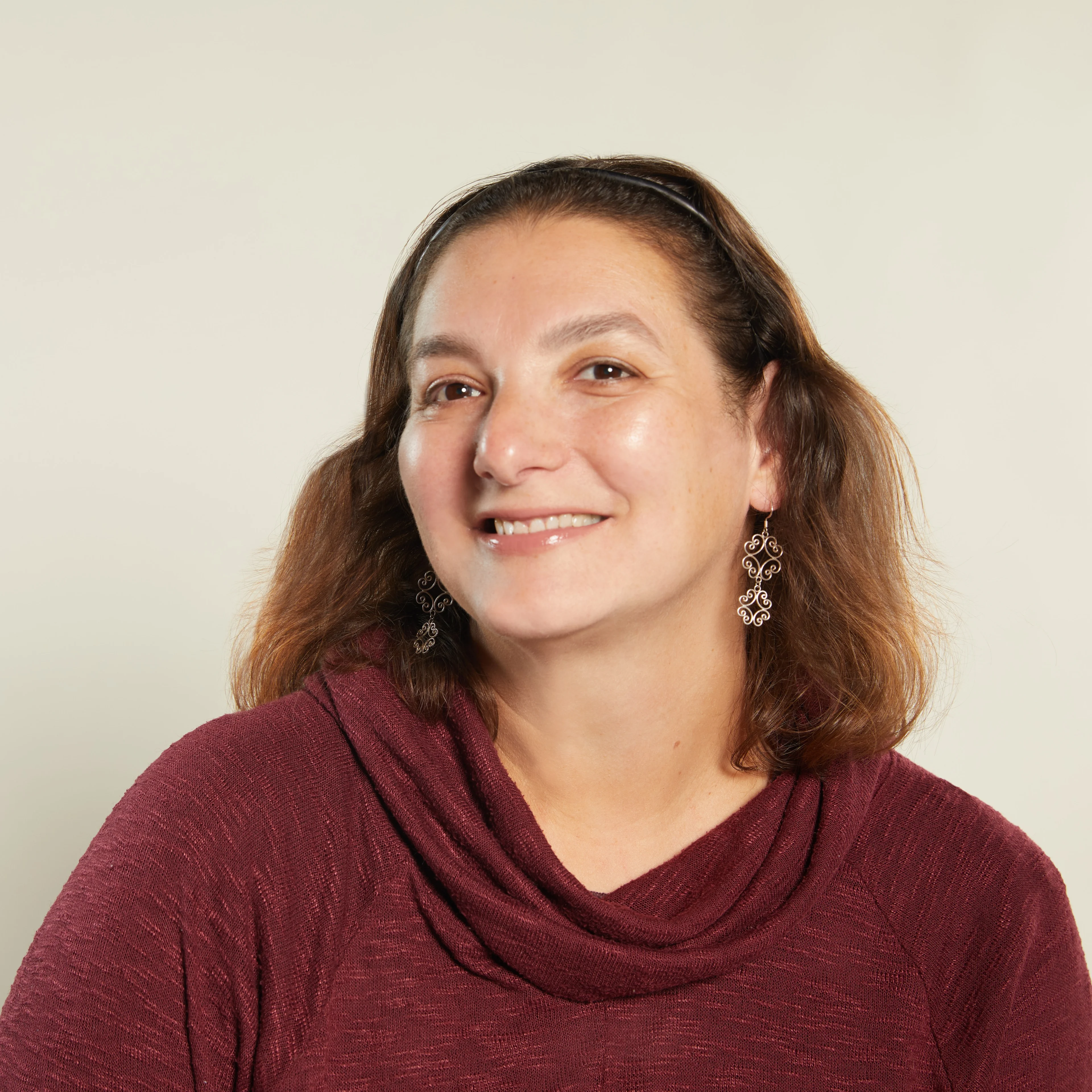
Rachel Bozek
is co-host of the “In It” podcast and the parent of two kids with ADHD. She has a background in writing and editing content for kids and parents.
Latest episodes
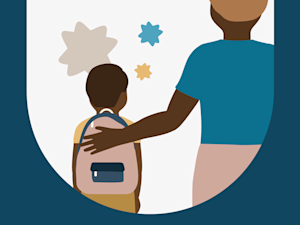
April 11, 2024
Learn ways to advocate for your child at school while maintaining a good relationship with their teachers.
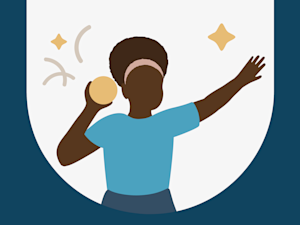
March 28, 2024
The track and field gold medalist shares her story and talks about ADHD, dyslexia, and building confidence.
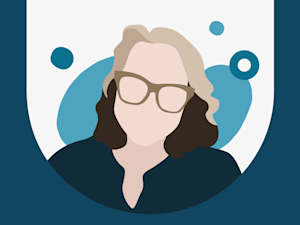
March 14, 2024
The hosts interview kids’ book author Lindsey Rowe Parker. She talks about her new picture book about sensory differences in kids.
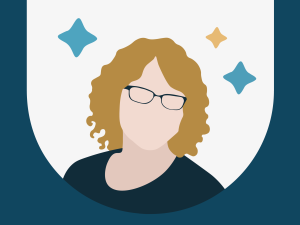
February 29, 2024
Understanding what a language disorder means for your child can be overwhelming. Here’s help from an expert.
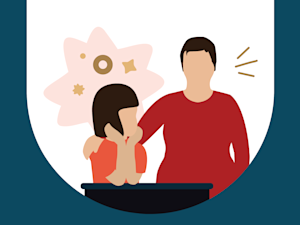
February 15, 2024
Talking with your child about their diagnosis of a learning and thinking difference can be tough. Get advice from an expert.
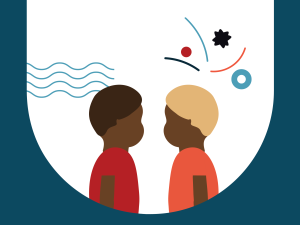
February 1, 2024
How can you manage the challenges of having one child who learns and thinks differently and one child who doesn’t? Get advice from an expert.
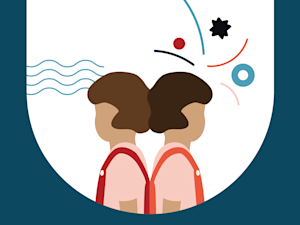
January 18, 2024
Any sibling relationship can be hard to manage. But what happens when one of the siblings has a learning or thinking difference? Here’s one mom’s story.

January 4, 2024
Overwhelmed by talking with your child’s pediatrician about ADHD or learning differences? These tips can help.
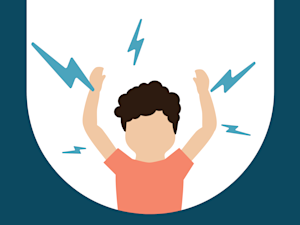
December 14, 2023
Tantrums and meltdowns are challenges all parents face. Get tips for projecting calm when kids and teens have tantrums.

November 30, 2023
A child’s learning or thinking difference can take any parent by surprise. One mom shares how her daughter’s diagnosis changed her parenting.
